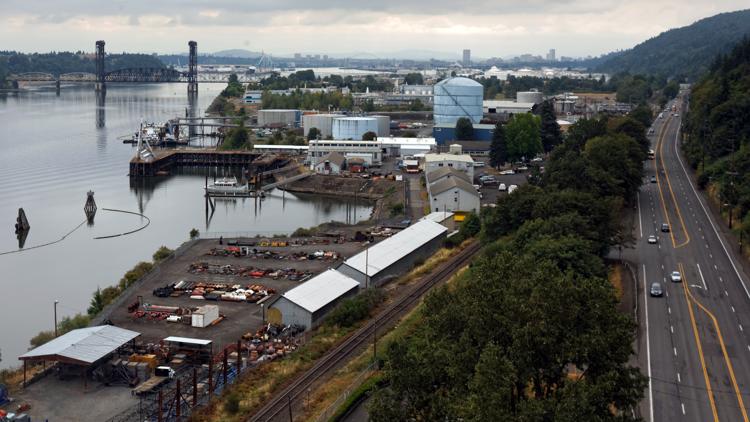PORTLAND, Ore. — For the third time in six years, the City of Portland has passed a zoning ordinance that bans most new fossil fuel terminals and caps the size of existing sites.
Two previous versions of the ordinance were appealed by business groups and struck down, but the city council voted Wednesday to adopt a third version that city staff said addressed all the issues that had been flagged by the state Land Use Board of Appeals during the previous attempt.
The ordinance amends the city's zoning code to create a specific land use category for bulk fossil fuel terminals and prohibits the expansion of storage tank capacity at existing facilities in the city. It also limits storage tank capacity at any new fuel terminals to 2 million gallons and prohibits storing coal.
RELATED: Portland city council prepares third attempt to place limits on local fossil fuel terminals
The prohibition is intended to reduce greenhouse gas emissions and tackle earthquake risks, because Portland's existing fossil fuel export terminals are clustered along the Willamette River in an area prone to soil liquefaction, raising concerns about a spill during a Cascadia Subduction Zone earthquake.
The ordinance still allows for seismic upgrades at the existing sites, including new tanks that replace existing tanks without raising total capacity. It also includes exceptions to allow for increased storage of renewable fuels and jet fuel, due to projected higher demand for both in the future.
Mayor Ted Wheeler noted that Wednesday's vote was the council's third attempt to pass the ordinance, and he thanked advocates, city staff and current and former commissioners for sticking through the process.
"I know that some of you have been working on this for years and years and years," he said, "and I want to thank you for your continued leadership and your continued diligence on behalf of the entirety of the community."
Wheeler and all of the commissioners present at the meeting voted to approve the measure and praised the environmental impacts of the ordinance, although commissioner Mingus Mapps added some reservations.
"I'm concerned about what's not in this ordinance," he said. "The proposed ordinance, for example, fails to provide exemptions for fossil fuel infrastructure projects that improve safety or accelerate the transition to lower-emission fuel sources. I think eventually council should look at those issues, but I also recognize that this is not the day to have that discussion."



